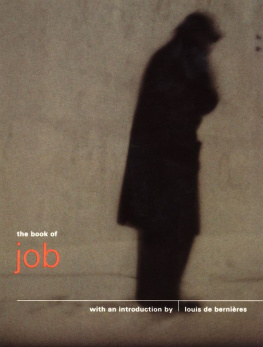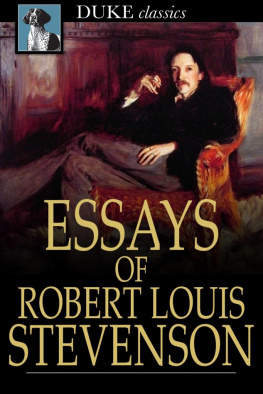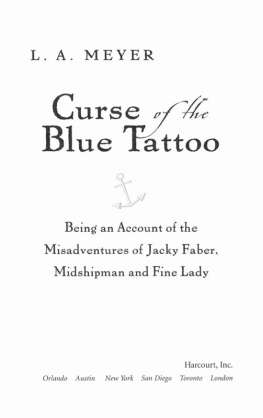Louis de Bernières - The Book of Job
Here you can read online Louis de Bernières - The Book of Job full text of the book (entire story) in english for free. Download pdf and epub, get meaning, cover and reviews about this ebook. year: 1999, publisher: Canongate Books, genre: Science. Description of the work, (preface) as well as reviews are available. Best literature library LitArk.com created for fans of good reading and offers a wide selection of genres:
Romance novel
Science fiction
Adventure
Detective
Science
History
Home and family
Prose
Art
Politics
Computer
Non-fiction
Religion
Business
Children
Humor
Choose a favorite category and find really read worthwhile books. Enjoy immersion in the world of imagination, feel the emotions of the characters or learn something new for yourself, make an fascinating discovery.
- Book:The Book of Job
- Author:
- Publisher:Canongate Books
- Genre:
- Year:1999
- Rating:3 / 5
- Favourites:Add to favourites
- Your mark:
- 60
- 1
- 2
- 3
- 4
- 5
The Book of Job: summary, description and annotation
We offer to read an annotation, description, summary or preface (depends on what the author of the book "The Book of Job" wrote himself). If you haven't found the necessary information about the book — write in the comments, we will try to find it.
Suffering in an unjust world is the theme of this book. God punishes Job, a wealthy and pious man, after giving an assertion to Satan that his subject will never curse him. It goes on to explain why Job has suffered, raising ethical questions about the nature of divinity. The text is introduced by author Louis de Bernieres
The Book of Job — read online for free the complete book (whole text) full work
Below is the text of the book, divided by pages. System saving the place of the last page read, allows you to conveniently read the book "The Book of Job" online for free, without having to search again every time where you left off. Put a bookmark, and you can go to the page where you finished reading at any time.
Font size:
Interval:
Bookmark:
In the past Christians readily accepted this notion, which is why, for example, one finds Isaak Walton referring to it whilst discoursing on the alleged patience of the angler. In fact there are literary parallels to the story in Persian, Sumerian, Akkadian and Babylonian, and in the Biblical version there appear to be several allusions to Ugaritic myth. Some of the unique or rare words in the text are possibly Edomite. There exists an apocryphal Testament of Job, and there is even an amusing tale about Job and his wife in the Islamic tradition. It would seem, then, that the story is a variant on an ancient folktale, that may indeed be as old as the patriarchs, but could have been composed by anyone from any of the interlocking mosaic of cultures that existed in the region between 2000 and 700 BCE . God, in the story, is not omniscient (He asks Satan what he has been up to), there is no clear belief in the afterlife, and Satan is still one of Gods courtiers.
This means that if the tale is Jewish, it would have to date from before the exile in Babylon. There may have been at least three authors of the book, since Elihus intervention, and the long and wonderful poem about the inaccessibility of wisdom are almost certainly interpolations, but whoever the main author was, he was a great poet. The original is very terse, but since Hebrew requires half the number of words needed in English, no English translation could hope to do justice to it. Furthermore, no-one knows exactly how Hebrew poetry was stressed or scanned, and so for us the quality of the verse will depend upon the force, aptness and beauty of expression; the reader of Job will be struck mostly by the skill of the author in repeating the same thoughts in new ways that are continually refreshing and illuminating. It has to be said that one gains very little new information from each speech, and anyone looking for snappy action and exciting new events would certainly be better off hiring a video, the point being that this is really a long and beautiful poem about divine justice, rendered in the forms of narrative, dialogue, hymn, lament, proverb, and oracle. The compilers of the King James version in this volume did not have the benefit of modern scholarship, and so their rendition is often confused and inaccurate, but they have nonetheless managed to contribute their sonorously fair share of poetry to the English language.
Chapter 14 stands independently as a moving lament for the human condition: Man that is born of a woman is of few days, and full of trouble. He cometh forth like a flower, and is cut down . Elsewhere we find the proverbs: The price of wisdom is above rubies and The fear of the Lord, that is wisdom, and the memorable words adapted by Handel for his Messiah: I know that my redeemer liveth, and that he shall stand at the latter day upon the earth; and though after my skin worms destroy this body, yet in my flesh shall I see God. It may be unfortunate that this is a hopeless mistranslation of the original verses, which are not about redemption and resurrection at all, but it is still great writing. The book is in fact very largely about faith, however, and particularly about the issue of theodicy whether or not one can have faith in the goodness and worthiness of an omnipotent creator who is apparently responsible for creating evil, and tolerating the suffering of the innocent. Whereas Jobs attitude is profoundly felt and deeply personal, his four comforters take a more detached and philosophical line, but it is important to remember that God and Satan are the only two who really know what is going on.
Satan is portrayed as an affable but astute fellow who is on terms of familiarity with God; when the latter asks him where he has been, Satan casually replies From going to and fro in the earth, and from walking up and down in it. When God invites Satan to admire Jobs uprightness, Satan very acutely points out that God has made sure that Job has had an easy ride of it, but put forth thine hand now, and touch all he hath, and he will curse thee to thy face. God accepts the challenge, with the proviso that Job himself must not be physically harmed, whereupon Satan destroys Jobs oxen, sheep, camels, servants and children. Jobs equanimity survives these trials, and Satan points out to God that an attack on Jobs person is more likely to do the trick. God gives his permission, and Job is struck down by a revolting combination of foul diseases. At this point Job does indeed turn against God, and Satan is heard of no more, having won his wager.
The quantity of shekels involved in this bet is not recorded, but no doubt Satan spends them whilst going once more to and fro in the earth, and walking up and down in it, his conscience eased by the thought that he has merely been obeying orders from a superior. Jobs comforters are possibly the most irritating characters in all of literature, and Job more than once tells them that they are completely intolerable. Elihu is the last, and is the most annoying of all of them, since he announces that all the others have been beside the point, whilst he, although the young est, has the conclusive arguments. He then says nothing interesting or original, in the manner of sententious bores the world over. He says that God rescues people repeatedly, that it is up to God to choose what happens, that Job must have done some thing wrong, because God is righteous, that God is beyond our capacity to comprehend, and that God does not do evil. To be fair to young Elihu, he was probably not in the original story, but the other self-righteous prigs certainly were.
Each has three speeches, and Job replies to them in turn. Eliphaz says that God only punishes the wicked, that God saves and protects, that we cannot know Gods plans, that Man is naturally vile and unclean in Gods eyes, that God punishes sinners in their own lifetime, and that Job must therefore be a rebel and a sinner. His concluding comment is that none of us make any difference to God one way or the other. Bildad asserts that God does not pervert justice, that we are ignorant of the real state of things, that God will not reject the upright, that we are punished for forgetting God, and that Job must therefore be evil and Godless. His final thought is that we are nothing, before Gods omnipotence. Zophar says that God knows what the reality is, and that therefore Job must be guilty of something.
The mirth of the wicked is brief, he says, and God brings them down. That phrase about the patience of Job could not be further from the mark. Job is, for all but three of the forty-two chapters, exasperated by his comforters, reduced to abject misery by his afflictions, and disillusioned and furious with God. The defiance of Job would have been a far more apposite figure of speech to have passed into the language. His comforters have all the usual inane, pious, platitudinous, facile morsels of cod-wisdom at their fingertips, but it is Job who has all the passion, and all the grasp of the real paradoxes implicit in the idea of theodicy. Job tells his comforters that his argument is with God, and not with them, and that, if they are just trying to curry favour with God, then the latter will surely see through them.
Font size:
Interval:
Bookmark:
Similar books «The Book of Job»
Look at similar books to The Book of Job. We have selected literature similar in name and meaning in the hope of providing readers with more options to find new, interesting, not yet read works.
Discussion, reviews of the book The Book of Job and just readers' own opinions. Leave your comments, write what you think about the work, its meaning or the main characters. Specify what exactly you liked and what you didn't like, and why you think so.








![Louis de Montfort - The Saint Louis de Montfort Collection [7 Books]](/uploads/posts/book/265822/thumbs/louis-de-montfort-the-saint-louis-de-montfort.jpg)



